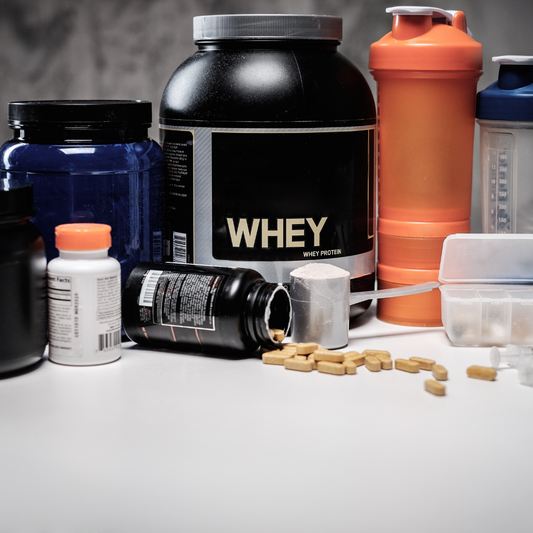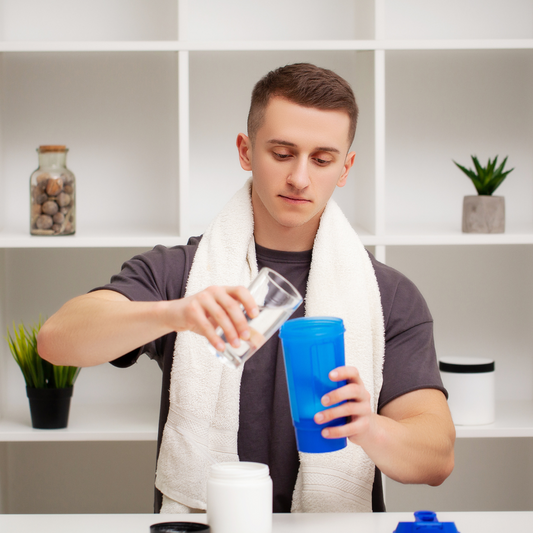Testosterone is a hormone that plays a vital role in muscle growth, bone density, mood regulation, and, yes, your libido. Research shows that optimal testosterone levels can lead to increased energy, motivation, and overall well-being. Nutrition plays a pivotal role in maintaining optimal testosterone levels.
Nutrition and Testosterone
Let's delve into how your diet can impact this essential hormone. Protein is the building block of life and testosterone. Research from the Journal of Applied Physiology shows that diets higher in protein can support healthy testosterone levels. Aim for lean sources like chicken, fish, and plant-based options like beans and tofu.
Don't shy away from fats, but choose the right ones. Foods rich in healthy fats, like avocados, nuts, and olive oil, can promote testosterone production. They provide the necessary cholesterol, a precursor to testosterone.
Essential vitamins and minerals are your allies. Zinc, vitamin D, and omega-3 fatty acids, found in sources like salmon and walnuts, are linked to testosterone support.
Avoid Excessive Sugar. Excessive sugar consumption can lead to insulin resistance, which may lower testosterone. Be mindful of your sugar intake and opt for complex carbs from whole grains, fruits, and vegetables instead. Remember, a balanced diet is crucial.
Extreme diets or excessive calorie restrictions can negatively impact testosterone levels. Your overall health benefits when you focus on a well-rounded and nutritious eating plan.
Strength Training and Testosterone
Welcome to the core of testosterone enhancement - Strength Training. It's more than just lifting weights; it's about sculpting your body and supercharging your testosterone. The foundation of any effective strength training routine lies in compound exercises. These movements engage multiple muscle groups simultaneously. Think squats, deadlifts, and bench presses. Research published in the Journal of Sports Science & Medicine reveals that compound exercises can lead to substantial testosterone boosts.
Resistance Training. The principle is simple: challenge your muscles. Whether you're using weights or your body weight, resistance training promotes muscle growth and a surge in testosterone production. It's a win-win.
High-Intensity Workouts. Intensity matters. Push yourself with high-intensity interval training (HIIT) or shorter rest periods between sets. Studies in the Journal of Strength and Conditioning Research highlight that these workouts can trigger significant testosterone release.
Adequate Rest. Remember, muscles grow during rest. Overtraining can lead to increased cortisol levels, which antagonize testosterone. Ensure you're getting enough quality sleep to aid recovery and optimize hormone balance. S
Strength training isn't just about appearance; it's about empowering your body from within. Incorporate these techniques into your fitness routine, and you'll harness the full potential of strength training for boosting testosterone.
Stress Management and Testosterone
Stress, the silent testosterone killer. Let's uncover the impact of stress on your hormone levels and, most importantly, how to manage it effectively. When you're stressed, your body releases cortisol, often referred to as the "stress hormone."
Studies conducted by the American Journal of Physiology show a clear link between elevated cortisol levels and reduced testosterone production. Mindfulness and Meditation. Engaging in mindfulness practices and meditation can work wonders. Research published in the journal JAMA Internal Medicine suggests that regular mindfulness meditation can lead to significant stress reduction and improved overall well-being.
Exercise isn't just for building muscles; it's also a powerful stress reliever. The Journal of the International Society of Sports Nutrition reported that physical activity can help lower cortisol levels and elevate testosterone. Poor sleep quality and insufficient sleep can contribute to stress.
Inadequate rest can cause a vicious cycle of elevated cortisol and reduced testosterone. It's essential to prioritize quality sleep to break this cycle. Foods rich in omega-3 fatty acids, like salmon and walnuts, can help reduce stress. Additionally, maintaining stable blood sugar levels through balanced nutrition can prevent mood swings associated with stress.
Don't hesitate to lean on friends, family, or even a mental health professional. Opening up and discussing your stressors can provide emotional relief and help reduce cortisol levels. Incorporate these stress management techniques into your daily life, and you'll not only feel better but also ensure your testosterone levels remain in a healthy range.
Boost Testosterone with Supplements
Testosterone Booster Capsules
Now, let's discuss supplements and herbs that have shown promise in naturally boosting testosterone levels. While these options can be helpful, it's essential to remember that they should complement a healthy lifestyle and not replace the fundamentals we've discussed earlier. Studies published in the Journal of Clinical Endocrinology & Metabolism suggest that vitamin D plays a critical role in testosterone production. Adequate sun exposure and dietary sources like fatty fish and fortified foods can help maintain healthy levels.
Zinc is a mineral known for its impact on testosterone levels. Research from the journal Nutrition highlights that zinc supplementation can lead to significant increases in testosterone, particularly in individuals with zinc deficiencies.
Fenugreek is an herb that has gained attention for its potential to enhance testosterone levels. Studies, including one in Phytotherapy Research, have reported positive effects on libido and overall testosterone status.
Ashwagandha is an adaptogenic herb with a history in traditional medicine. Research from the journal Fertility and Sterility has suggested that it may help reduce stress-related testosterone declines. Remember, while these supplements and herbs can be beneficial, they're not a magic solution. Always consult with a healthcare professional before incorporating them into your routine, especially if you have underlying medical conditions or are taking medications.
There you have it—strategies to boost your testosterone naturally and quickly. Remember, results may vary from person to person, but these science-backed methods are an excellent place to start. If you found this video informative, don't forget to give it a thumbs up and subscribe for more evidence-based fitness and health content. And as always, consult a healthcare professional before making significant changes to your diet or exercise routine.



















